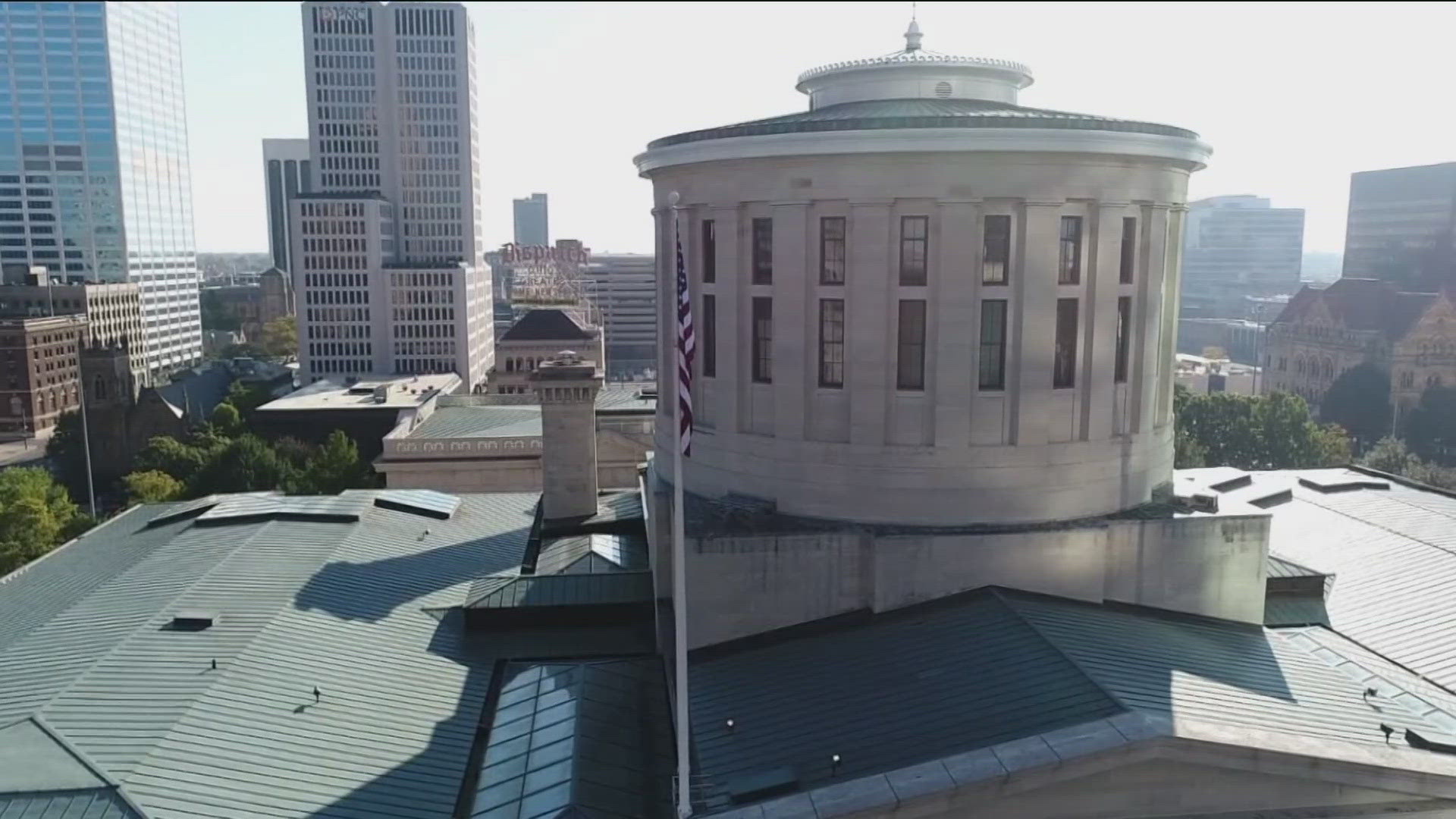TOLEDO, Ohio — Ohio Gov. DeWine signed into law House Bill 183 on Wednesday, which mandates people and students use bathrooms that align with their assigned sex at birth when it goes into effect in three months.
Commonly referred to as "the bathroom bill," it has garnered significant controversy and is up to schools and businesses to mandate.
"The statute itself contains no specific penalty," said Jerry Phillips, a criminal defense attorney.
He says HB 183 covers two facets: colleges, universities and other institutions public bathrooms, and K-12 schools.
"That issue it seems to me would be determined by the school and its internal disciplinary process, either by way of potential suspension or expulsion or whatever," Phillips said.
He explained that enforcement will fall on schools and businesses.
Brent Rabie, director of Equality Toledo, said the new law will help to create a wider divide.
"That's not OK, especially in a place where people are just trying to learn, and it's a bathroom. People just need to go to the bathroom," Rabie said. "If there's no real enforcement, then what was the point of this?"
"I think it's a really disturbing bill. It's not protecting anybody. It's endangering our trans youth, our LGBTQ youth, it's just a way for them to control people who aren't like them," Rabie added.
Jae Morales, a member of Equality Toledo's board of directors, believes the bill sends a message that discrimination is acceptable.
"I just hope for the future we have some allies in the background somewhere that recognize this bill for what it is and take the appropriate action for the children that are involved," Morales said.
The Republican-backed bill passed 24-7 in the Ohio Senate.
"It revolves around the safety, security, and I think, common sense. It protects our children and grandchildren in private spaces where they are most vulnerable," said Republican Sen. Jerry Cirino, who sponsored the bill.
Sen. Rob McColley (R-Napoleon) agreed.
"The lens I look at is that it's not as much about the individual who wants to use the opposite bathroom from their sex assigned at birth, but more so the people who are already in that bathroom who are using it, who are counting on us to make sure they're comfortable," said McColley, who will serve as Senate president in the 136th General Assembly.
But Morales said this bill is anything but comfortable.
"We are able to come to some kind of agreement," Morales said. "I know in the past I've learned that what's worked is single-stall bathrooms. You don't want us in your bathroom? I promise we don't want to be there."
Phillips said while the bill may not have any legal consequences, it poses the question of how schools and businesses will enforce it.
"There's a provision in the statute that provides that if you have a single bathroom, a single-person bathroom, or a single-person shower, that that can be designated under a specific section of the statute and appears to be able to be used by either gender or a transgender person," Phillips said.

